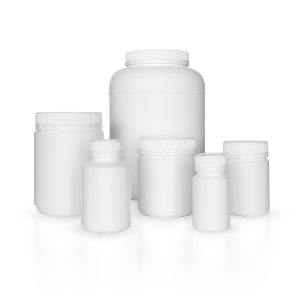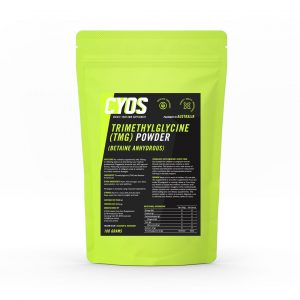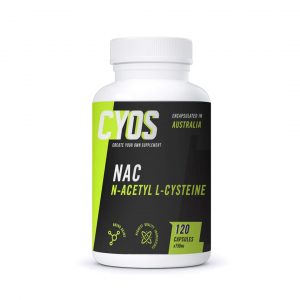


Health
J J 16 Dec 2019
Improving Health with Resveratrol
Share
What is Resveratrol?
Decades ago, researchers found that drinking a glass of red wine a day can help lower cholesterol. This was used to explain why the French – regular red wine drinkers – have such low risks of cardiovascular disease. The same scientists state that it’s not the red wine per se that makes it a healthy beverage, but what’s inside the red wine: Resveratrol.
Resveratrol is a compound found in plants and is known to possess antioxidant properties. While the most popular source is red wine, it is naturally sourced from grapes, peanuts, and some berries. It is highly concentrated in the skin and seeds of grapes and berries, the parts included in the fermentation of wine.
Companies have manufactured and sold resveratrol as a heart-healthy supplement. Furthermore, many have attributed resveratrol consumption to a longer life. After all, heart disease is still one of the primary causes of death in the world, so lowering heart disease risk can indirectly prolong one’s life.
But what does the science say about resveratrol?
Performance and Health Benefits of Taking Resveratrol
1. May lower blood pressure
Systolic blood pressure normally rises with age as the arteries stiffen. When it’s too high, the risks of heart disease is at its peak. Studies have shown taking resveratrol in high doses can help reduce blood pressure by forcing the body to produce more nitric oxide.
Nitric oxide is our natural vasodilator or a compound that has key functions in blood circulation and blood flow. Higher resveratrol intake can lead to more nitric oxide content. More nitric oxide can promote blood vessel relaxation, lowering blood pressure in the process. [1]
2. Supports the healthy type of cholesterol
LDL and HDL are two of the main types of blood fats. LDL is referred to as the “bad” cholesterol (because higher LDL is a marker for heart disease) and HDL is referred to as the good cholesterol. Supplementing resveratrol has been found to exhibit pro-HDL properties. [2]
Resveratrol was shown to not only lower LDL, but also increase HDL count in animal and human subjects. Furthermore, the compound was also shown to naturally reduce the effects of specific enzymes that trigger cholesterol production.
As an antioxidant, resveratrol can also lower the oxidation of LDL cholesterol. LDL oxidation contributes to plaque buildup inside our artery walls.
3. Can improve overall longevity
Some researchers speculate that resveratrol might actually promote longevity. They said it’s due to how resveratrol activates specific groups of genes that can protect against diseases related to ageing. However, scientists do note that they’re still inconclusive when it comes to human subjects. [3]
4. Supports brain health
Studies have linked brain health and slowing down age-related cognitive decline to red wine consumption. They say it could be due to red wine’s antioxidant and anti-inflammatory properties.
Resveratrol has been shown to interfere with protein fragments that lay the groundwork for brain diseases like Alzheimer’s disease. Also, it can also promote processes that trigger a “protect brain cells” function. [4]
5. May have benefits for those with diabetes
Insulin resistance is characterized as the weakening of the body’s ability to properly scavenge glucose from blood circulation. This forces the body to produce more insulin to try to compensate, but too much insulin has been linked to multiple cardiovascular conditions like obesity.
Taking resveratrol can influence insulin sensitivity and help prevent complications from diabetes. Researchers say it’s due to how resveratrol helps reduce the conversion of glucose to sorbitol. Too much sorbitol in people with diabetes can promote oxidative stress. [5]
6. May have anti-cancer benefits
In various studies, resveratrol has some positive results when it comes to preventing and treating cancer. It demonstrated the ability to ward off several kinds of cancer cells, especially those of skin, colon, prostate, and breast cancer.
It can potentially reduce cancer cell growth, alternate genes to inhibit cancer cell multiplication, and have anti-cancer effects on hormone-dependent cancer cells. [6]
However, most of these studies were only observed in test tubes or in animals.
Summary
Resveratrol is the one compound that many agree to be the reason behind the health benefits of red wine. In studies, it has shown to have cardiovascular, cholesterol, anti-cancer, and even longevity benefits. While most studies were of animal subjects or test tubes, resveratrol is still considered beneficial to humans.
Resveratrol is available in Powder form.
References:
- Bonnefont-Rousselot D. Resveratrol and Cardiovascular Diseases. Nutrients. 2016;8(5):250. Published 2016 May 2. doi:10.3390/nu8050250
- Xie HC, Han HP, Chen Z, He JP. A study on the effect of resveratrol on lipid metabolism in hyperlipidemic mice. Afr J Tradit Complement Altern Med. 2013;11(1):209–212. Published 2013 Nov 2.
- Hubbard BP, Gomes AP, Dai H, et al. Evidence for a common mechanism of SIRT1 regulation by allosteric activators. Science. 2013;339(6124):1216–1219. doi:10.1126/science.1231097
- Regitz C, Fitzenberger E, Mahn FL, Dußling LM, Wenzel U. Resveratrol reduces amyloid-beta (Aβ₁₋₄₂)-induced paralysis through targeting proteostasis in an Alzheimer model of Caenorhabditis elegans. Eur J Nutr. 2016;55(2):741-747.
- Fröjdö S, Durand C, Pirola L. Metabolic effects of resveratrol in mammals–a link between improved insulin action and aging. Curr Aging Sci. 2008;1(3):145-51.
- Chen ZH, Hurh YJ, Na HK, et al. Resveratrol inhibits TCDD-induced expression of CYP1A1 and CYP1B1 and catechol estrogen-mediated oxidative DNA damage in cultured human mammary epithelial cells. Carcinogenesis. 2004;25(10):2005-13.
CYOS blog content is for informational and educational purposes only, and should not be considered medical advice, diagnosis or treatment recommendations. Always consult with your doctor or medical professional before using any dietary supplements or if you suspect you have any medical concerns or issues.
Share
SHOP OUR PRE-MADE CAPSULES RANGE
100% Pure • Encapsulated in Australia • Vegetarian Capsules • No Fillers • No Additives • No Binders • No Anti Caking Agents • Allergen Free • No Preservatives • Non GMO
Our best sellers
 Search Products
Search Products
 All Products A-Z
All Products A-Z
 Pre-Made Capsules
Pre-Made Capsules
 Additives
Additives
 Amino Acids
Amino Acids
 Anti-Oxidants
Anti-Oxidants
 Beauty
Beauty
 Bioactive Compounds
Bioactive Compounds
 Bulk Items
Bulk Items
 Empty Capsules
Empty Capsules
 Fats & Oils
Fats & Oils
 Fibers
Fibers
 Herbal Extracts
Herbal Extracts
 Joints
Joints






 Mushroom Extracts
Mushroom Extracts Nootropics
Nootropics Packaging
Packaging Probiotics & Digestion
Probiotics & Digestion Proteins
Proteins Sleep
Sleep Stimulants
Stimulants Super Blends
Super Blends Super Foods
Super Foods Tools
Tools Vitamins & Minerals
Vitamins & Minerals Weight
Weight Workout
Workout